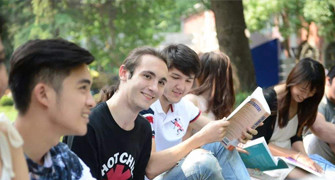Balancing the provision of basic public services has become a key policy priority for China, reflecting a shared societal demand. This study addresses a critical question in fiscal policy design: Should the focus be on enhancing local fiscal capacity or restructuring expenditure incentives to improve public service delivery? The research provides valuable insights into the mechanisms behind unequal public service provision and informs policy practices.
Research Methodology
Professor Lu Shengfeng and collaborators developed a spatial general equilibrium model to analyze how fiscal revenue shocks affect local governments' public service provision. Using spatiotemporal big data from livelihood-oriented public service facilities (2012–2020) and exploiting exogenous shocks from the global oil price collapse, they empirically tested the impact of fiscal revenue on service delivery.
Key Findings
Dual Effects of Fiscal Revenue: Increased revenue significantly boosts livelihood-oriented services, but only after basic needs for productive public services (e.g., infrastructure) are met.
Expenditure Prioritization: Local governments optimize fiscal structures toward "livelihood-focused, investment-friendly" outcomes only when productive expenditures are secured.
Spatial Imbalances: New funds for livelihood services often concentrate in specific areas, revealing persistent regional disparities in resource allocation.
Publication & Impact
Published in Economic Research (Issue 2, 2025), the study was conducted by:
Lu Shengfeng (Professor, School of Economics and Management, Wuhan University)
Tian Hui (Ph.D. Candidate, Wuhan University)
Li Cheng (Hubei University of Economics)
Funding: National Natural Science Foundation of China; MOE Key Research Base Projects; Wuhan University Young Scholars Program.

Researcher Profile:Lu Shengfeng
Professor, Department of Public Finance and Taxation, Wuhan University
Key Publication: "Fiscal Revenue, Expenditure Incentives, and Livelihood-Oriented Public Service Provision" (Economic Research, 2025)
DOI/URL: Source Link
Contributed by: Office of Scientific Research & Discipline Development
Edited by: Lan Song
Reviewed by: Yanqing Liu
 Faculty and Staff
Faculty and Staff Academics
Academics International Exchange
International Exchange







